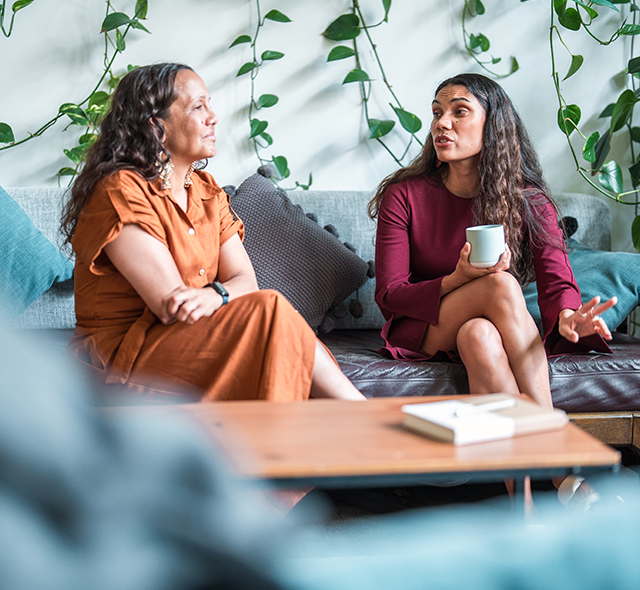Aboriginal Community Controlled Organisation
Aboriginal Community
Controlled Organisation (ACCO)
Yarning
Yarning is a fundamental practice within Aboriginal ways of working, embodying a culturally grounded approach to communication, relationship-building, and knowledge sharing.
It creates a safe, respectful space for individuals to engage in
open, meaningful conversations, ensuring voices are heard without hierarchy or haste. Through yarning, trust and mutual understanding are cultivated, allowing for the sharing of personal stories, cultural knowledge, and lived experiences, which are crucial in community-centered work. This process acknowledges Aboriginal cultural values, empowering participants by respecting their perspectives and fostering genuine connections. In professional settings, yarning enriches the approach to health, social services, and education by centering Indigenous ways of knowing,
fostering inclusivity, and deepening the impact of services delivered to Aboriginal people.
In Home Stretch WA, yarning is an essential practice that aligns deeply with Aboriginal ways of working, creating a culturally safe environment for young Aboriginal people transitioning out of care. Yarning allows transition coaches and young people to build trust through open, honest conversations that respect each individual’s story and experiences. This informal, relational style of communication promotes a space where young people feel comfortable sharing their aspirations, fears, and needs without judgment, fostering a sense of belonging and cultural validation.
By integrating yarning into their work, Home Stretch WA coaches honor Aboriginal communication styles, prioritizing relationships over rigid processes and making sure young people feel seen and understood. Yarning also empowers these young people to shape their paths forward by discussing their goals in a supportive, culturally sensitive setting, and connecting them with resources that reinforce their cultural identity.
Well, I message young people every month—except this week because it was a public holiday. Yeah, just letting them know, like to remind them that we're here for them if they just need anything, like a yarn or a feed. Keeping that communication open is vital
This role we had just different yarns and talk to fellas. Just sitting around the fire, yarning with some of the young people as well. Working with younger cohort in the past. That just haven't known about their family and stuff like that and just being connected within the community, being able to do some family finding, I think just around the conversations you end up having with them and community, and then doing that sort of the inroads into working with them in the future and down the track and continue to do their family finding.”

Home Starch Acco Audio
Acknowledgement
The Home Stretch WA – Community of Practice would like to Acknowledge the Traditional Custodians of the land on which we use. We would like to pay our respects to our Elders past, present and emerging. We are privileged to be a part of the longest living culture in the world.
Quick Links
FOR MORE



